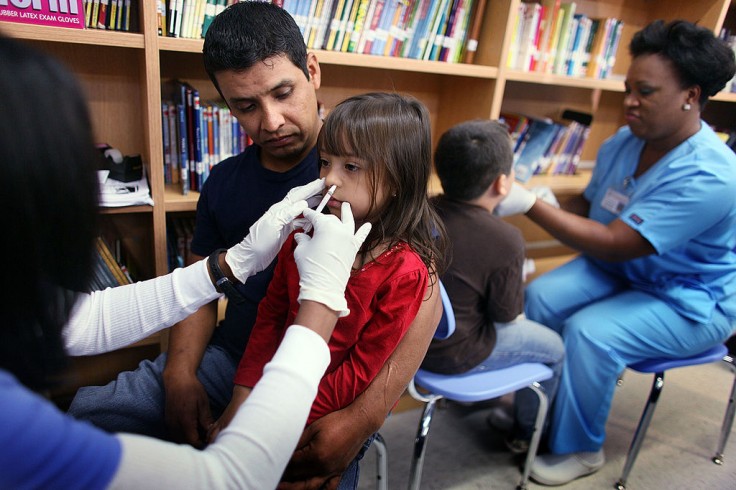
Everywhere in the nation children have flu, cough, or fever or all of the above, and it is resulting in parents and school nurses pitting against each other.
America has been hit, not only with the "triple whammy" of RSV, COVID, and influenza, as Trail Gazette described it, but also of other infections like strep throat, common colds, and stomach bugs, causing parents and school nurses to make tough decisions and disagree whether the kids should stay home from school or not.
Parents want to continue sending sick kids to school as they don't want their children missing out on in-person learning and instructions. Also, sending the kids to school would also mean continuous, undisturbed daily routines as they juggle and balance work and home responsibilities.
School nurses, on the other hand, have to "play defense," calling parents to pick up their sick children and reminding them about the school's sick policy, with the intention of protecting other students and school staff.
What should parents do?
This is making parents angry and frustrated, but school nurses are being firm and pushing back, CBS News reported.
The big question is who should be followed?
Dr. Mallika Marshall, MD, Emmy-award-winning journalist and practicing physician in Internal Medicine and Pediatrics, encouraged parents to know when it is crucial to keep their kids home from school.
Dr. Marshall gave a to-do list for parents to help them identify if it is safe for the kids to go to school.
Know the school's sick policy and be respectful of it.
Make COVID tests kits available at home so that kids can be immediately tested once they get a cold or fever.
Know the general rule: Children with fever SHOULD stay at home until they are free from fever or had fever-reducing medications for 24 hours. Thus, it is not right to just give kids Tylenol and have them go to school without the fever being cured.
Children should really stay at home if they are vomiting, have diarrhea or a bad cough.
Always check with the school nurse first before sending kids that are feeling better to school. If the children has had a cold or flu-like symptoms and yet are already feeling better, talk with the school nurse first to avoid receiving a call from the school in the middle of the day to pick the kids up due to symptoms and sickness.
Read Also: RSV 'Rampant' in the Country, Doctor Says: Symptom
Parents and adults are advised to take Flu and COVID booster shots
A school nurse from Joseph Stackhouse Elementary School, Heather Verner-Hussmann, reminded parents to not let the kids bring cough drops to school. These are considered medication and should not be taken in school without a note from the pediatrician or doctor.
Kevin Unger, President and CEO of UCHealth Northern Colorado Region, shared that their company is currently monitoring the "triple whammy" on a daily basis and have seen that more children are being hit.
"We've seen a huge increase in RSV cases. If your child gets the virus, the key is to keep them at home and minimize the spread," he urged parents.
Dr. Jared Olson, a population epidemiologist, encouraged parents and adults to take the "new bivalent COVID booster shot," as it will provide the community with "important increased immunity."
Moreover, Dr. Paul Mayer, MD, emphasized that people need not worry about taking the COVId booster and the flu shot at the same time as it is safe.
Related Article: New York Mom Has Urgent Message for Parents After Baby Struggled With RSV